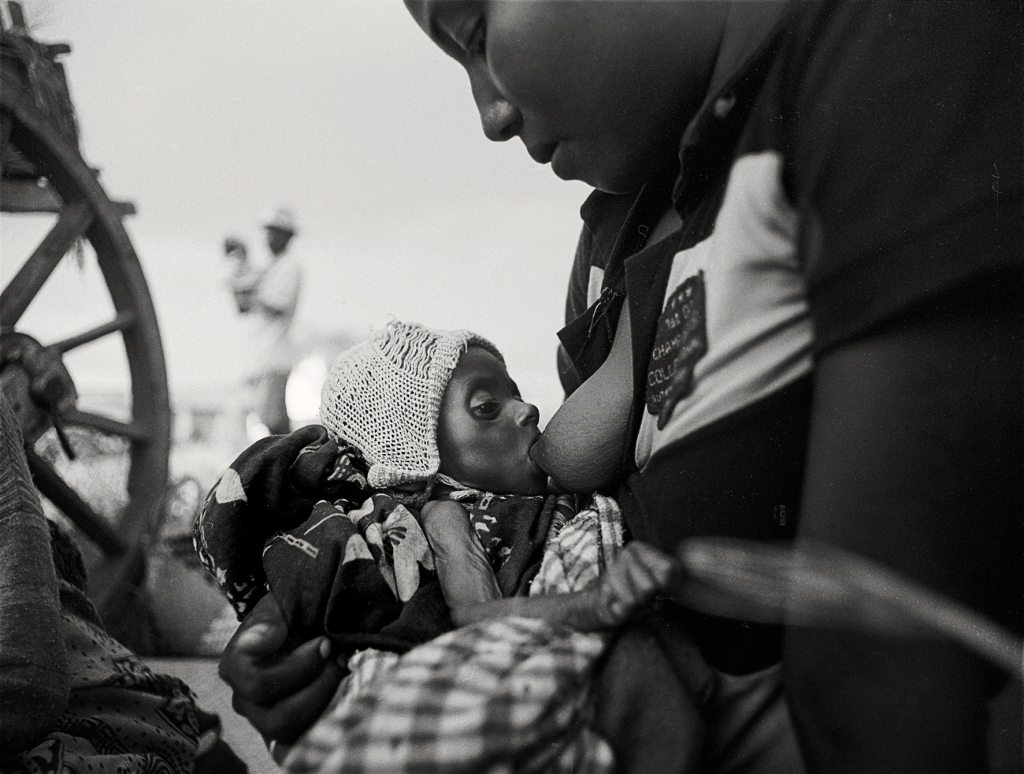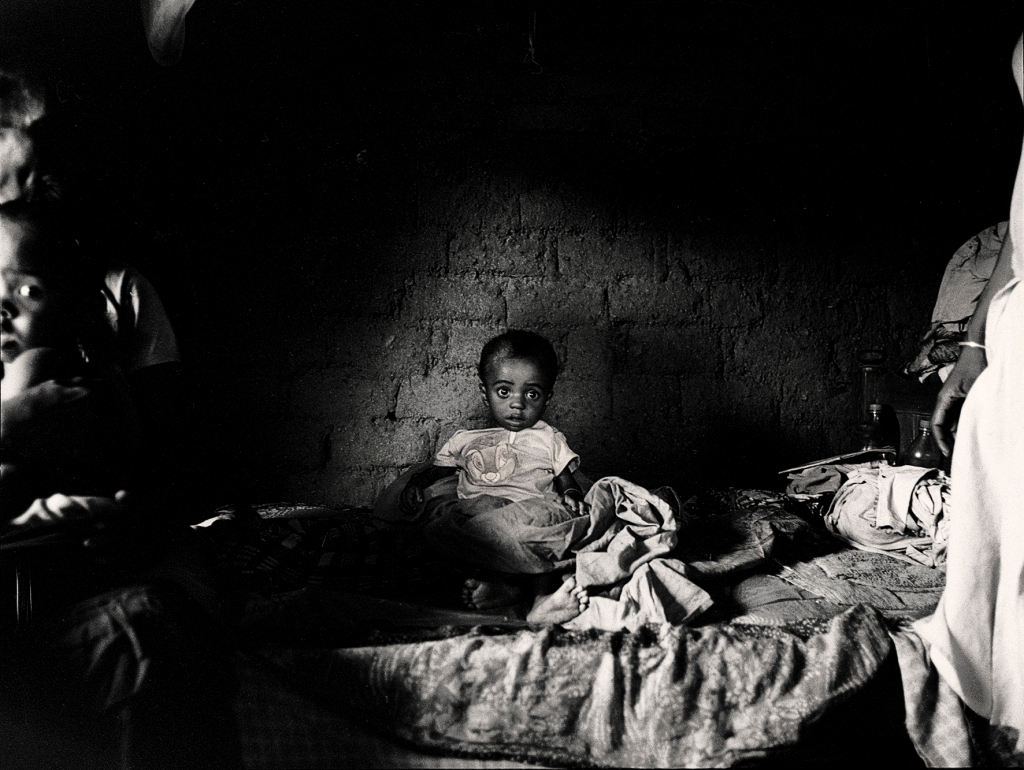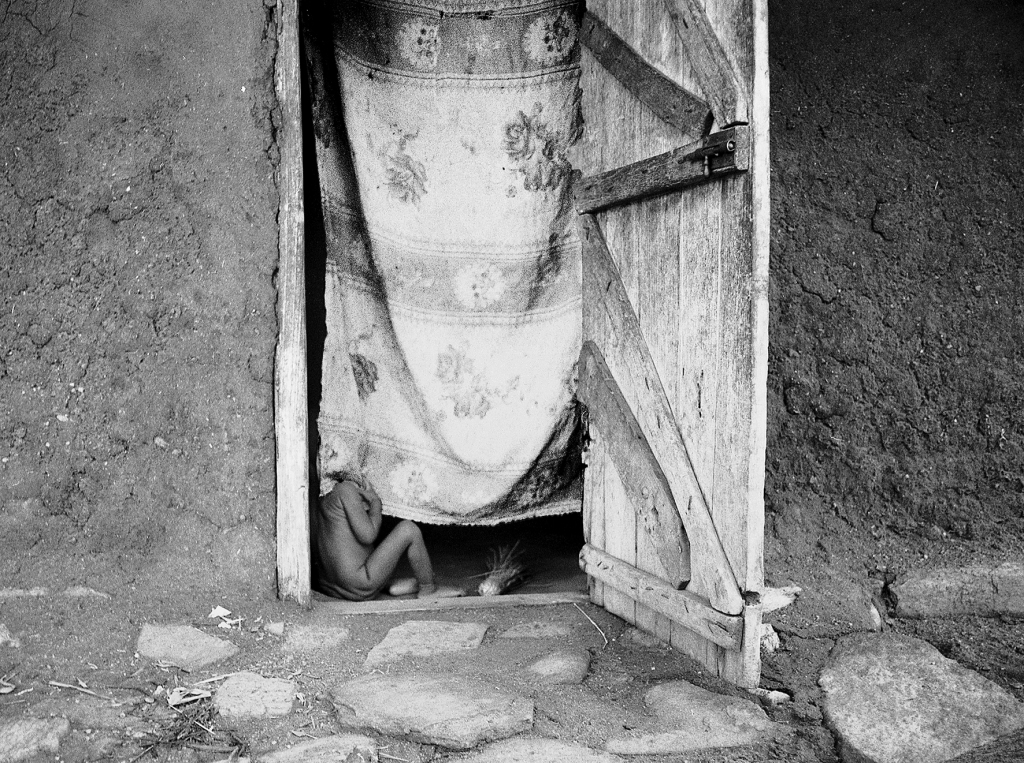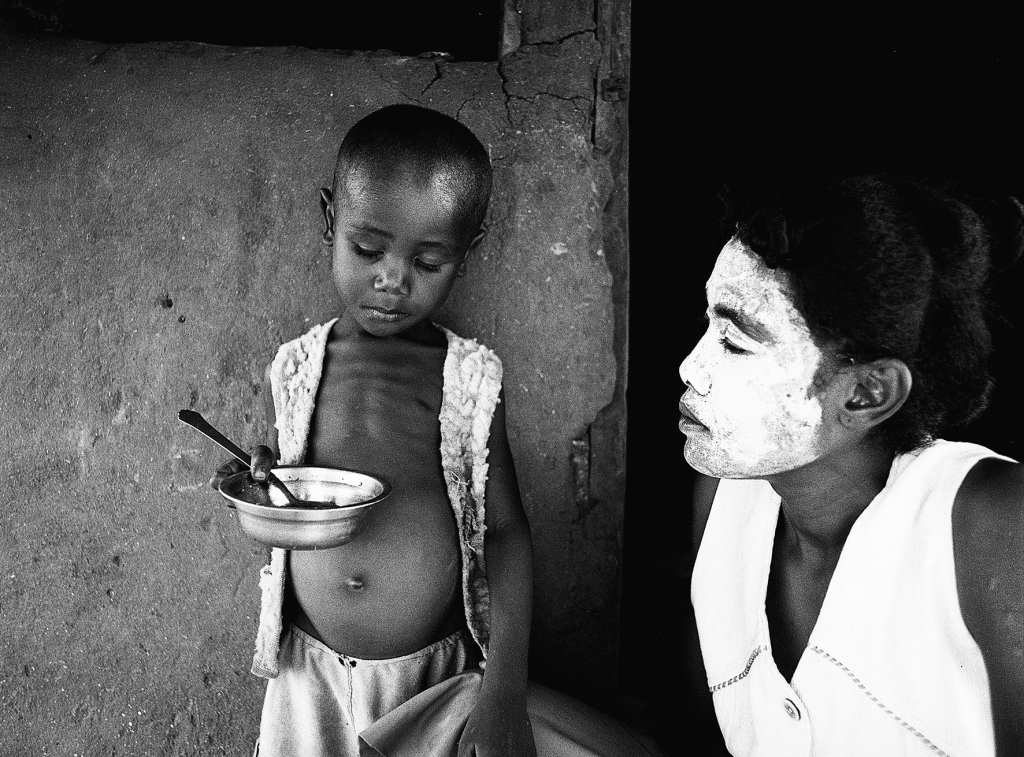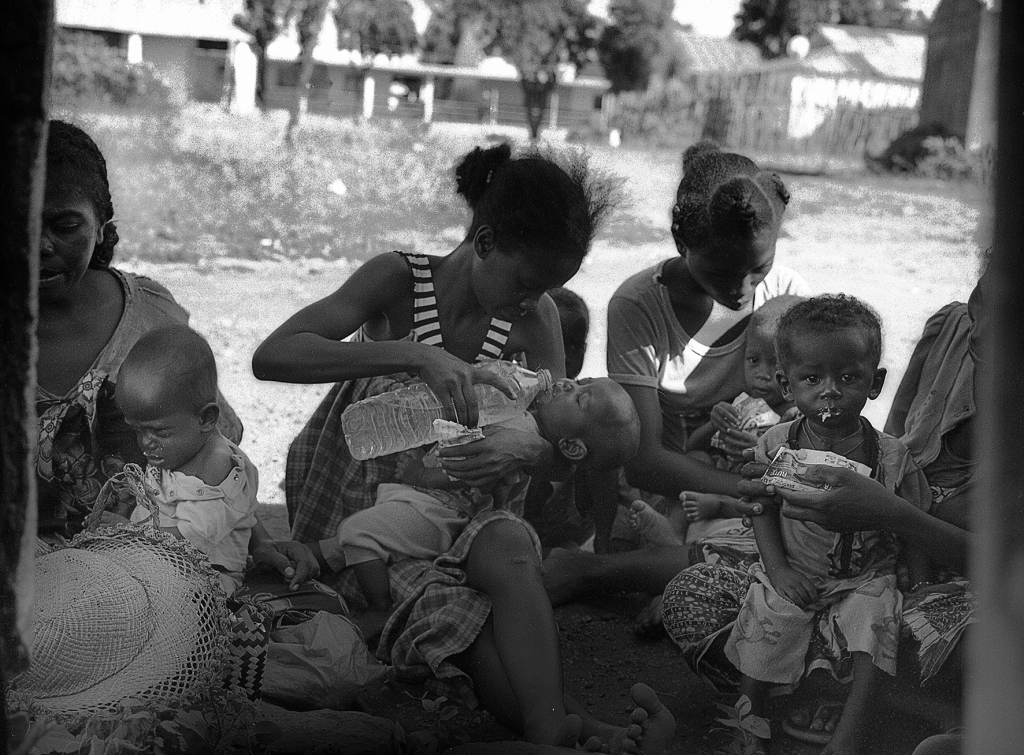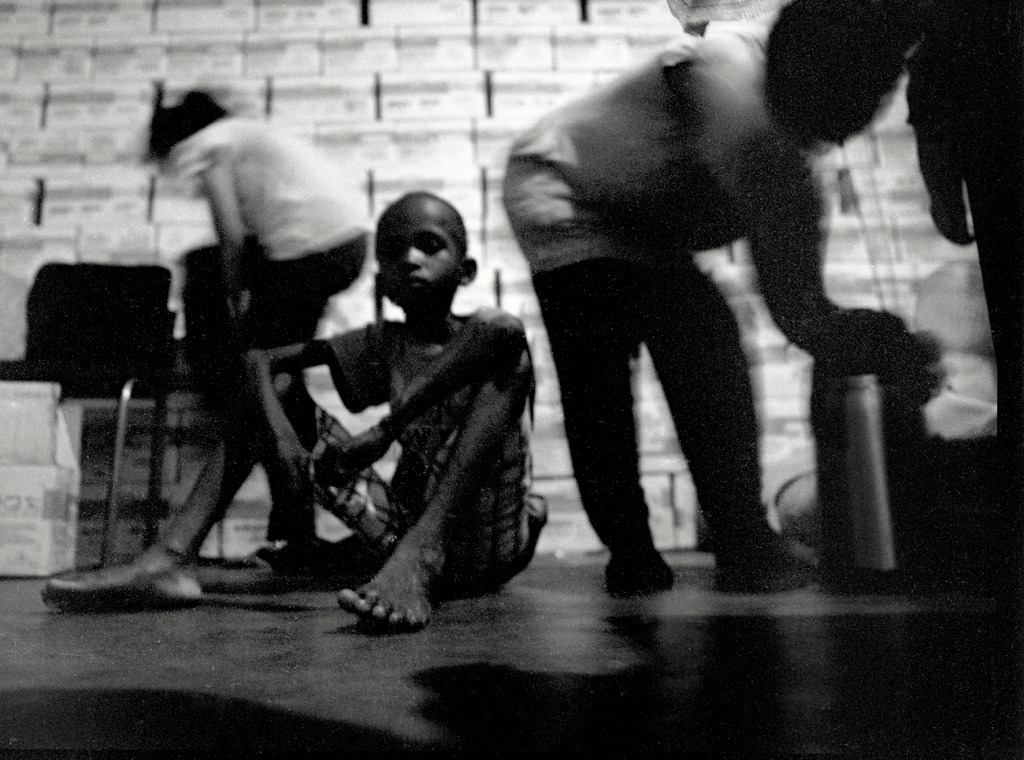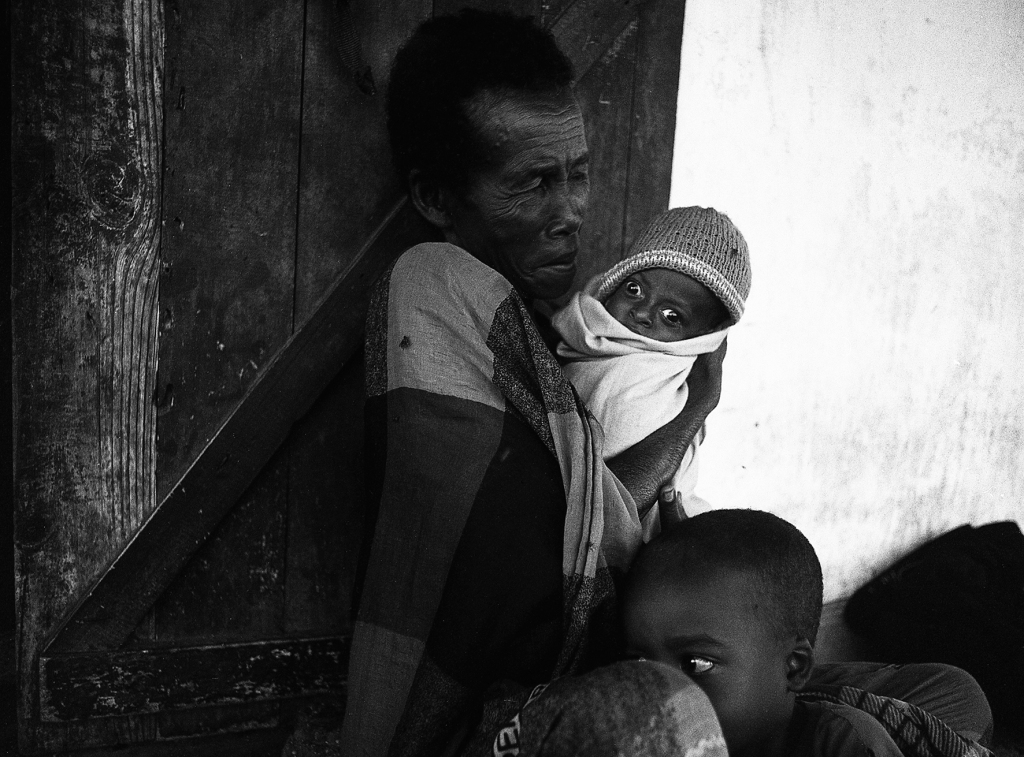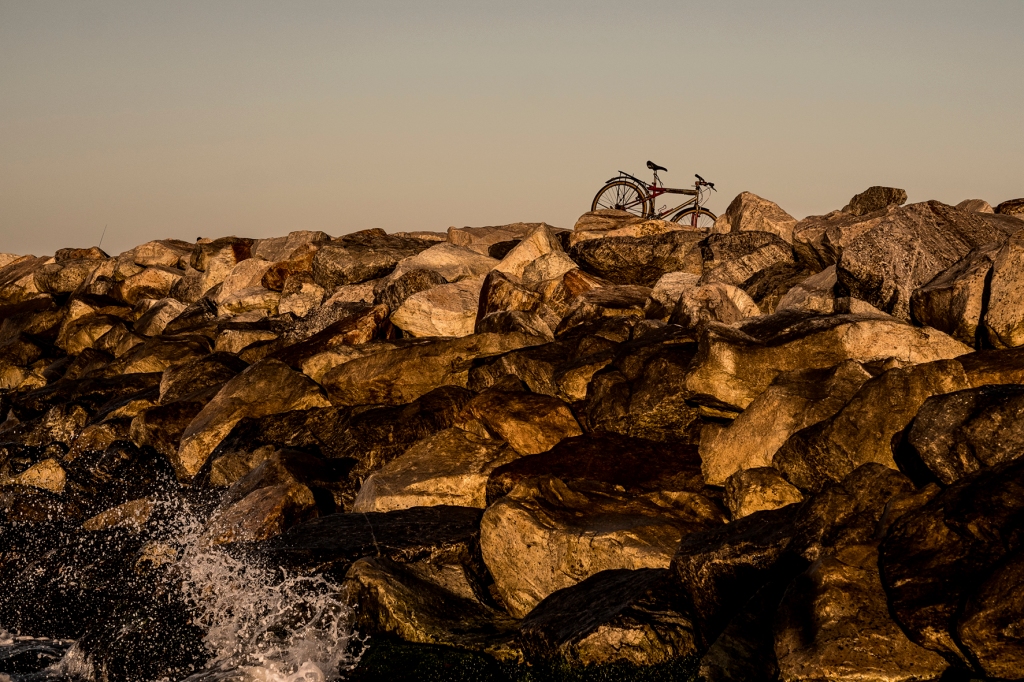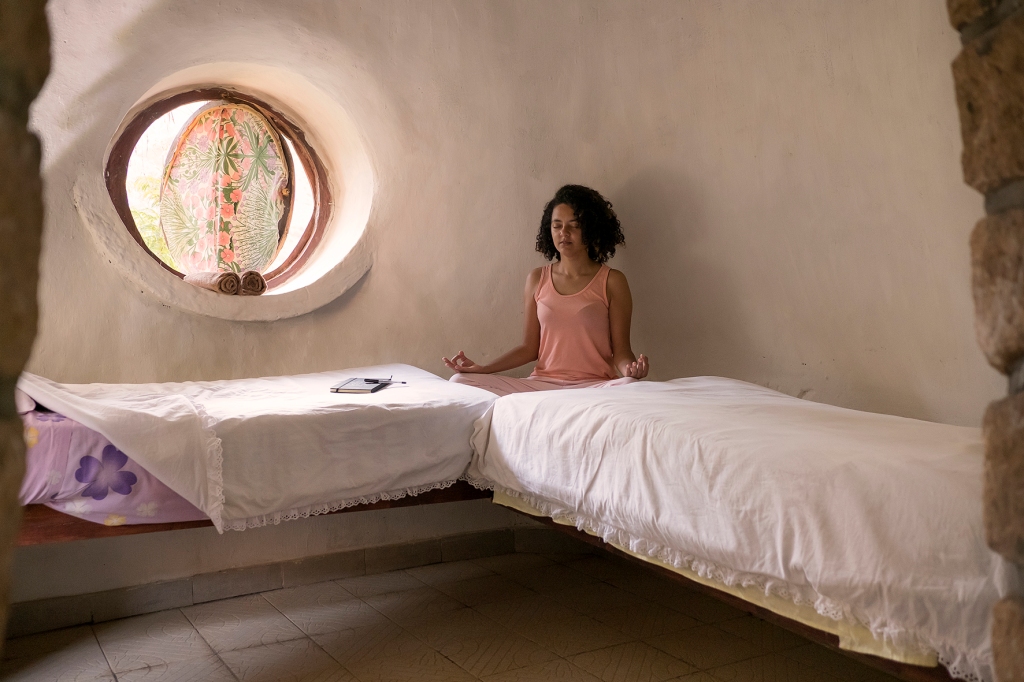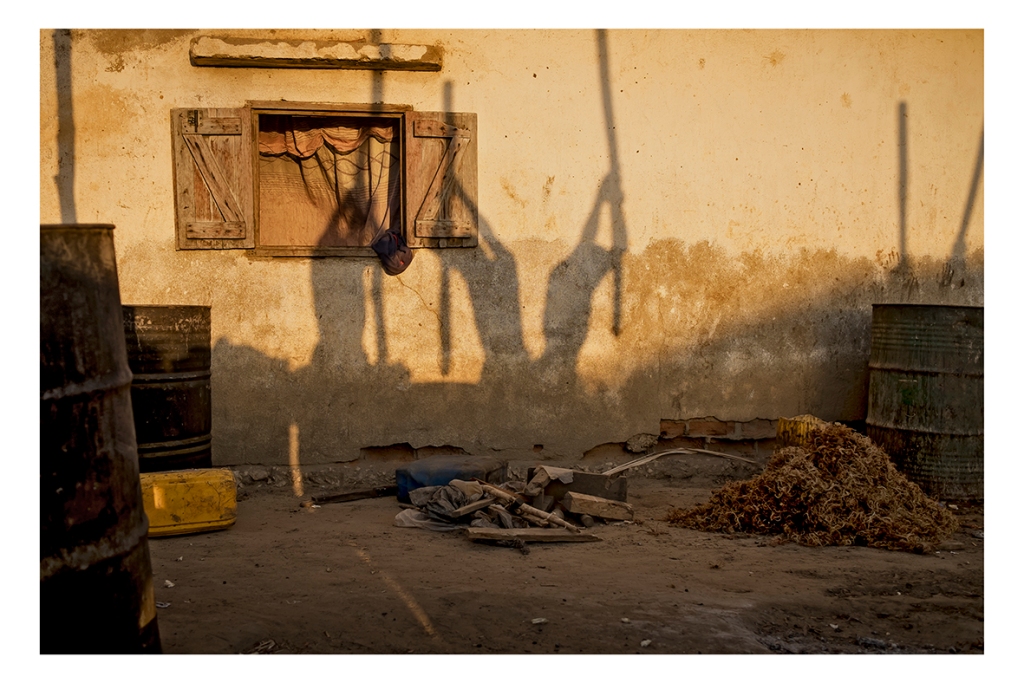Few things are more important in famine than confidence in the people who are delivering aid equally and fairly to all. When images of hunger reach the west, aid streams to the south of Madagascar, but who receives it? To clarify this, I had to go to Antaly in the district of Ampanihy, a village far that needs help. Draught has taken a heavy tall on this spiny land. Deforestation, lack of rain, unplanned parenthood, bad roads, malaso (bandits) and dahalo (zebu thieves).
Indeed, aid arrives here; sometimes ridiculous, sometimes real. Plumpynut and plumpysoup bags litter the sand, cars deploying personnel, medicine, money and equipment and a general smell of discontent. From the Centre Sante de Base (CSB) I trace one of the afflicted families.
Harinasoa, a single mother of six, her middle son (Sena) is underweight and her last daughter is severely ill. Their diet nowadays, like many here, constitutes of boiled corn and fresh prickly peers. The family’s daily average spending is 500ar (~15cents). By the time I arrive, Sena was already on his third bag of plumpynuts, a soft mix of peanuts, dry milk, sugar and additives. This bland food is packaged on the island and distributed as primary food aid by organizations.
Three bags per person per day, the NGO employee had prescribed 21 bags for Sena. Mothers are asked to save the empty bags and remit on each visit as proof of consumption. Although the bags are labelled: not intended for sale, grocery shops around the island are selling for 800ar to 1,500ar (~50cents). The employees who are administering this aid ascertain that families are reselling and pocketing the money.
Foraging is still the main food source for the inhabitants of Antaly. Far from the sea, the seasonal diet is mango, tamarind, wild potatoes, ashes, prickly peers, and cassava leaves and tubers. Rice is a luxury and meat a privilege. Sena doesn’t mind, he spends most of his day close to the kitchen eying the entrance for any food. By nightfall his empty belly wouldn’t let him sleep and he barges in crying for some more food – to a helpless mother.
Regardless how long you delay traversing the dreadful RN10 (national road), one ought return home. News at home however, weren’t settling. Shortly after arrival, I receive a communication that several employees who were interviewed had been lain off for stealing and selling plumpy products. Similar investigations were already on the way in other organizations, one had more than 60 tonnes of food aid (rice, corn, oil) disappearing into thin air. Another organization had had all its drivers and security guards in prison for investigating theft of equipment and materials (intended for preventive food security projects) worth more than 15,000 euros.
During my last week in Ampanihy, 28 new cases of malnutrition were added to the town’s CSB list, complications are common and number of hunger victims is on the rise. The beneficiaries barely receive enough aid to survive, the rest gets muddled up by elaborate schemes and personal interests blind to the eventual results. Blind to sisters and brothers, mothers and fathers who have the desire to live but not the ability.
Solidarity is a social virtue that bears many fruits. Aid that arrives should be delivered to those in need as intended for the programs to work, in order to save lives and revive those in need. If on the way to delivery each person keeps some, the beneficiaries ultimately will receive none.
It’s a fact that politicians and corruption are a major hindrance to effectuate real change in countries like Madagascar. The only window left for those in need is the integrity of persons who vowed to help them by working for aid organization. Please prove that you are trustworthy.
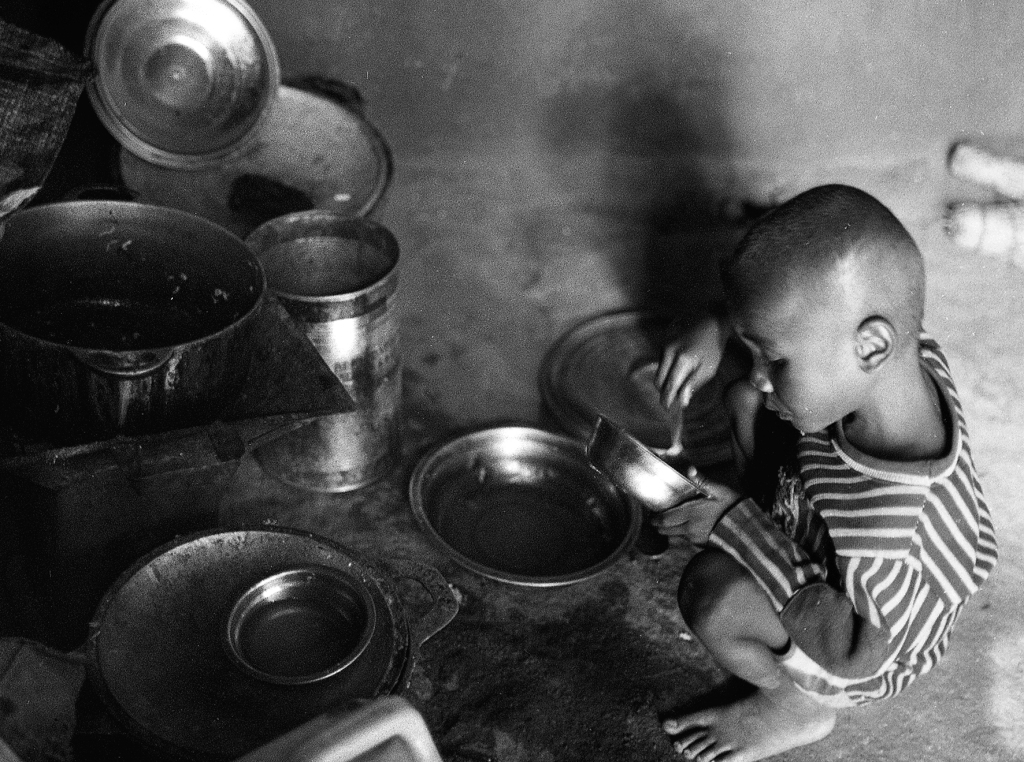
Ampanihy, Madagascar 2017 ©
READ NEXT ARTICLE LIRE L’ARTICLE SUIVANT
More Galleries For You
